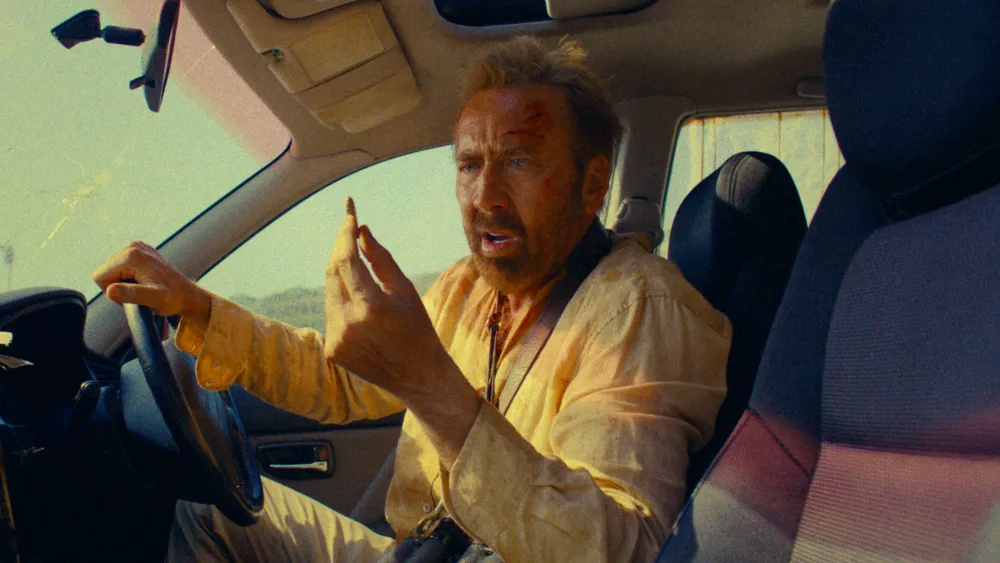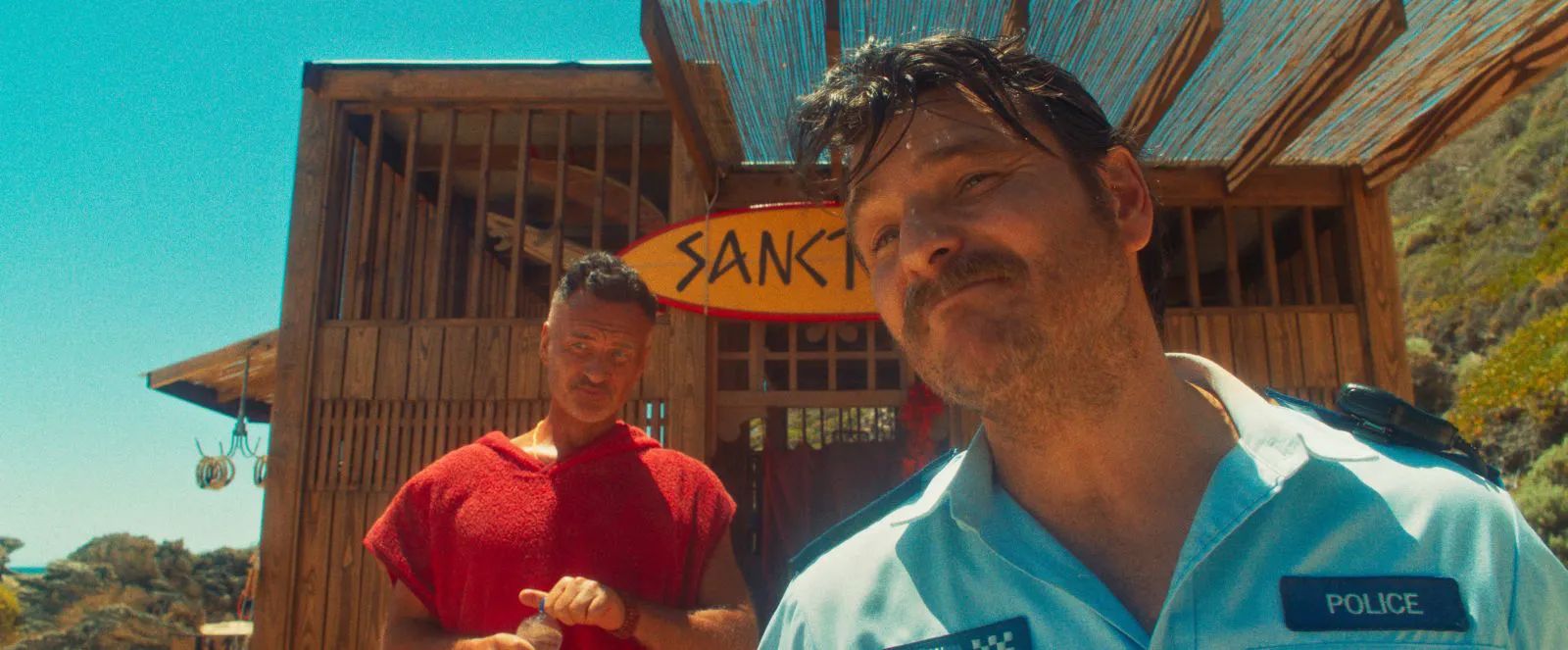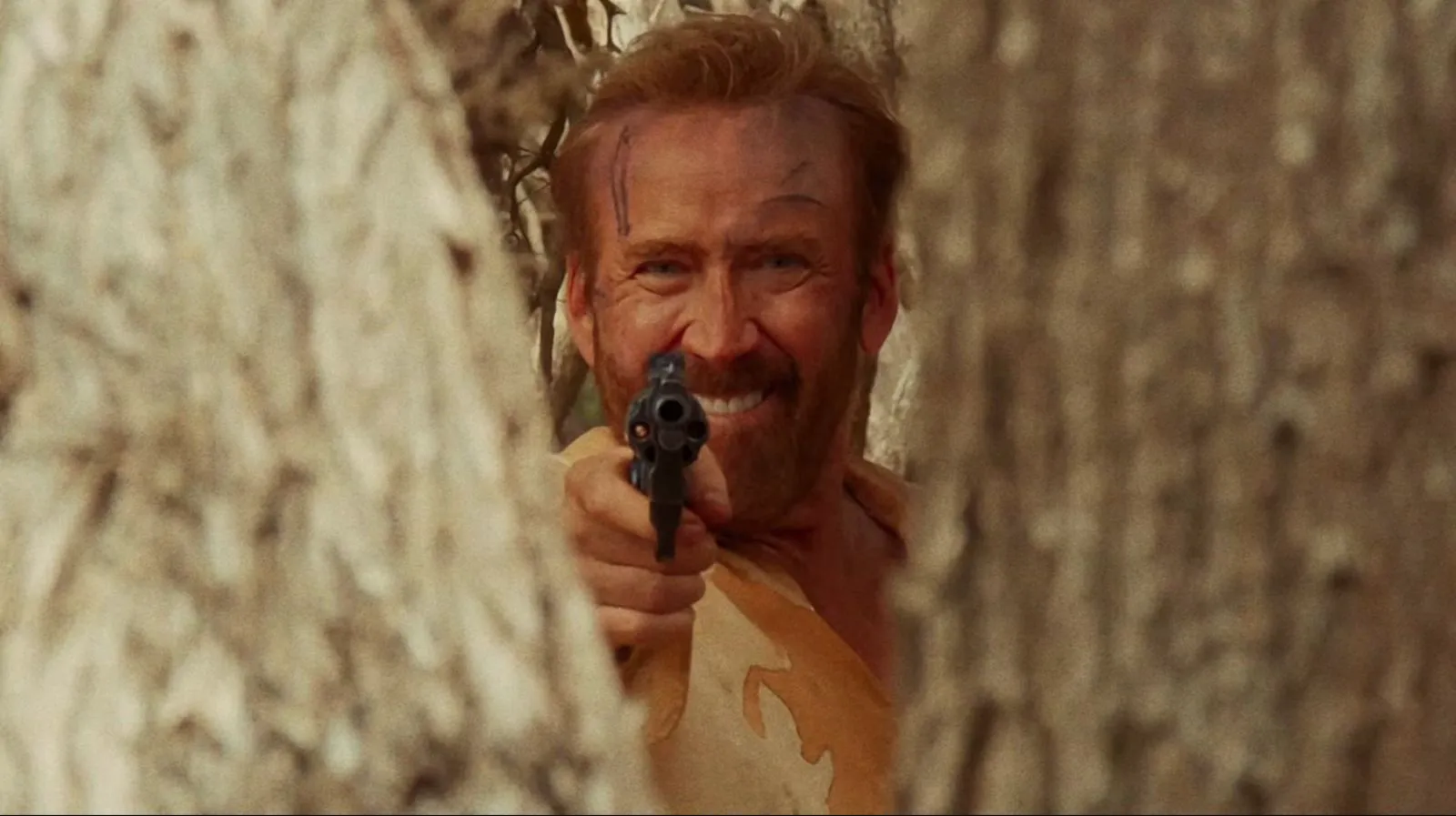The Relentless Tide of Obsession: Nicolas Cage Battles for His Wave in “The Surfer”
Lorkan Finnegan’s “The Surfer” is making waves as it hits Russian cinemas this May. It’s a gripping tale of a man’s descent into madness as he seeks justice, revealing how the simple desire to “return things to how they were” can open the floodgates to the darkest depths of the subconscious. Let’s dive into how Nicolas Cage fights tooth and nail to catch a wave, battling a gang of quasi-Buddhist surfers along the way.

Nicolas Cage in “The Surfer”
The film centers on a nameless protagonist (Cage), reeling from a divorce and desperately trying to reconnect with his son (Finn Little) and regain some semblance of stability. He returns to Australia, to the picturesque bay where he spent his childhood before a tragic accident involving his father led his mother to whisk him away to California. While the “Golden State” may have erased his Australian accent, it couldn’t extinguish his passion for surfing. Back in his homeland, Cage’s character plans to buy his childhood home, hoping this purchase will magically solve all his problems. He invites his son to join him for a surf, hoping to inspect their future home from the water.
A Turf War on the Waves
However, their idyllic plan is disrupted by a group of aggressive local surfers who claim ownership of the beach. One of them bluntly tells him, “If you’re not local, you don’t surf!” Swallowing his pride, Cage’s character retreats, only to return to the beach parking lot at night. It’s unclear whether he’s driven by wounded pride in front of his son or a surge of raw masculinity. The beach bullies belong to a pseudo-religious brotherhood led by the charismatic and sinister Scully (Julian McMahon). Scully, the heir to a wealthy family that owns all the land in the area, preaches renunciation of weakness, the pursuit of true masculine happiness through suffering, and, of course, surfing as the pinnacle of spiritual perfection.

Julian McMahon as Scully in “The Surfer”
Descent into the Abyss
The hero’s fight for the right to surf quickly escalates into a battle for survival. First, he loses his surfboard, which Scully symbolically hangs above the entrance to the brotherhood’s shack. Then, his car is stolen, forcing him to take refuge in the dilapidated vehicle of a local homeless man (Nick Cassin). He loses his shoes, his phone, and his presentable appearance, leading viewers to wonder if he was the vagrant all along. Finally, Cage’s character loses his mind, drinking dirty water from puddles, fighting a rat for a sleeping spot, and stealing eggs from bird nests.
Madness consumes the hero, stripping him bare, and Cage once again demonstrates his ability to effortlessly swing between extremes, from tragicomedy to absurdity. He makes the audience laugh and sympathize simultaneously, even changing his physicality throughout the film. The man loses everything, shedding his civilized veneer and transforming into a primal predator, all because he wanted to surf with his son. Lorkan Finnegan, known for his horror-puzzles about people losing their battle with psychosis, stays true to form. “The Surfer,” which premiered in the “Midnight Screenings” section of the 77th Cannes Film Festival, once again throws the hero into a confined space, turning reality inside out.

Nicolas Cage in “The Surfer”
A Visual Echo of the Past
Visually, “The Surfer” evokes the films of the 1970s, when the Australian New Wave revitalized the country’s cinema after World War II. The grainy film, saturated colors, extreme close-ups of faces, and surreal inserts with animals and coastal landscapes create a sense of a prolonged waking nightmare. Cinematographer Radosław Ładczuk, who worked on “The Babadook” and “The Nightingale,” masterfully conveys the feeling of heat and isolation. The beach, usually associated with peaceful relaxation, becomes a mousetrap.
Scully and his followers are also trapped, caricatures of modern “alpha males” who preach the cult of strength and dominance. Their rituals and mantras highlight the absurdity and danger of such ideologies, but Finnegan doesn’t prioritize the critique of toxic masculinity. Instead, he uses it as another lever to influence Cage’s character, who ultimately undergoes a crisis of self-identity and achieves catharsis, partly through Scully’s machinations.
“The Surfer” is a localized but powerful psychological drama disguised as a revenge thriller, a film about how far a person will go to reclaim their lost self. Certain images from the film will linger in the viewer’s mind, and Nicolas Cage’s performance will provide fans with even more meme material. However, fans of spectacular surfing may be disappointed, as there’s as little of it in the film as there are sound decisions made by the nameless hero in its hour and a half runtime. But that, too, is part of the director’s vision.